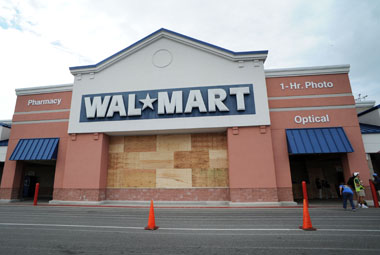The Bharti and Walmart partnership in India is officially over but both companies will independently pursue retail business in India.
Wal-mart will get 100 percent ownership of the ‘Best Price’ Modern wholesale cash and carry business while Bharti Retail will continue to operate ‘Easyday’ retail stores across all formats following the split.
Wal-Mart formed an equal joint venture with Bharti in 2007 under which it runs its Best Price Modern Wholesale Stores in India and the US retailer will now acquire Bharti’s stake in Bharti Wal-Mart Private Limited.It had opened its first wholesale cash-and-carry store under the brand “Best Price Modern Wholesale” in Amritsar in May 2009.
The US firm has also been managing Bharti’s retail chain Easy Day.
The agreement is subject to finalisation of definitive agreements and receipt of the requisite regulatory approvals.
The mandatory 30 percent sourcing from Indian small and medium enterprises (SMEs) and a minimum $100 million investment into fresh facilities of which 50 percent would be in the backend, was said to be a roadblock for Walmart.
Post the break up, Bharti will acquire compulsory convertible debentures held by Walmart in Cedar Support Services, a company owned and controlled by Bharti.
The break up was expected, especially after recent statements by Bharti chairman Sunil Bharti Mittal and Wal-Mart Asia CEO Scott Price, that the two partners were evaluating the joint venture.
Impact Shorts
More ShortsWalmart plans to continue to grow this business while working with the government and interested stakeholders to create conditions that enable foreign direct investment in multi-brand retail.
[caption id=“attachment_1143169” align=“alignleft” width=“380”]
 Getty Images[/caption]
Getty Images[/caption]
Walmart Asia Head Scott Price today said that operating independently would be beneficial to both companies.
“We will continue to make important social and environment contributions to India, seeking conditions that will boost retail FDI in India,” he said.
“Through Walmart’s investment in India, including our cash and carry business, supply chain infrastructure, direct farm programme and supplier development, we want to serve India and its people, and continue to make important social and environmental contributions to the country,” he added.
“Bharti is committed to building a world-class retail venture and will continue to invest in Bharti Retail across all formats. We believe that with our current footprint of 212 stores, we have a strong platform to significantly grow the business and delight customers. We wish Walmart the very best for the future,” said Rajan Bharti Mittal, Vice-Chairman and MD, Bharti Enterprises.
The government permitted foreign retailers to own 51 percent of their Indian operations in September 2012, but ambiguity around rules governing the policy has led to a situation in which no foreign retailer has so far applied to enter the country.
Moreover,Walmart’s investment in Bharti had come under the scanner amid allegations that the global retail chain may have entered India’s front-end multi-brand retail business two-and-a-half years before the government actually lifted the ban on foreign investors in the sector last year.
So in essence, ever since its inception in 2010, Walmart’s Indian operation has been mired in turmoil.
In November 2012, Bharti Walmart suspended its chief financial officer and other employees as it investigated alleged violations of US anti-bribery laws.
A few months ago, Walmart’s India head, Raj Jain, was replaced by Ramnik Narsey as interim chief.
At Bharti Retail also, Chief Operating Officer Mitch Slape, an old Walmart hand, was sent back to Walmart US recently.
A bigger headache was Walmart’s investment of $100 million in Cedar, the parent company of Bharti Retail, in March 2010 in the form of compulsory convertible debentures. The debentures were sold, and indirect control and management ceded to Wal-Mart by the Indian company at a time when FDI wasn’t allowed in multi-brand retail.This investment is being investigated by the Enforcement Directorate for alleged FEMA (Foreign Exchange Management Act) violations.Critics termed the transaction clandestine and illegal direct investment in the retail company.
As an Indian lawyer rightly told the Business Standard , “You’d be surprised to note that having an Indian partner can actually increase the risk for a foreign promoter. Why? Because the foreign promoter more than not has no control over the business here. If an Indian partner then is involved in fraud or misappropriation of funds, it can actually set the international company back impacting its potential to do business in India and nearby countries. Not to mention that there is an impact on its brand name and credibility as well.”
Little wonder that Wal-mart wanted to distance itself from any controversy in India as it fears the US Foreign Corruption Practice Act (FCPA) may come down hard on it.
And given the policy hurdles, especially confirming to the 30 percent local sourcing norms, the divorce between the two retail majors was just waiting to happen.But even though Wal-mart promises to stay invested in India, it had put expansion plans on hold since mid 2012. Walmart debuted in India with its first wholesale store in 2009 but has not added a single cash-carry outlet since October 2012.
)